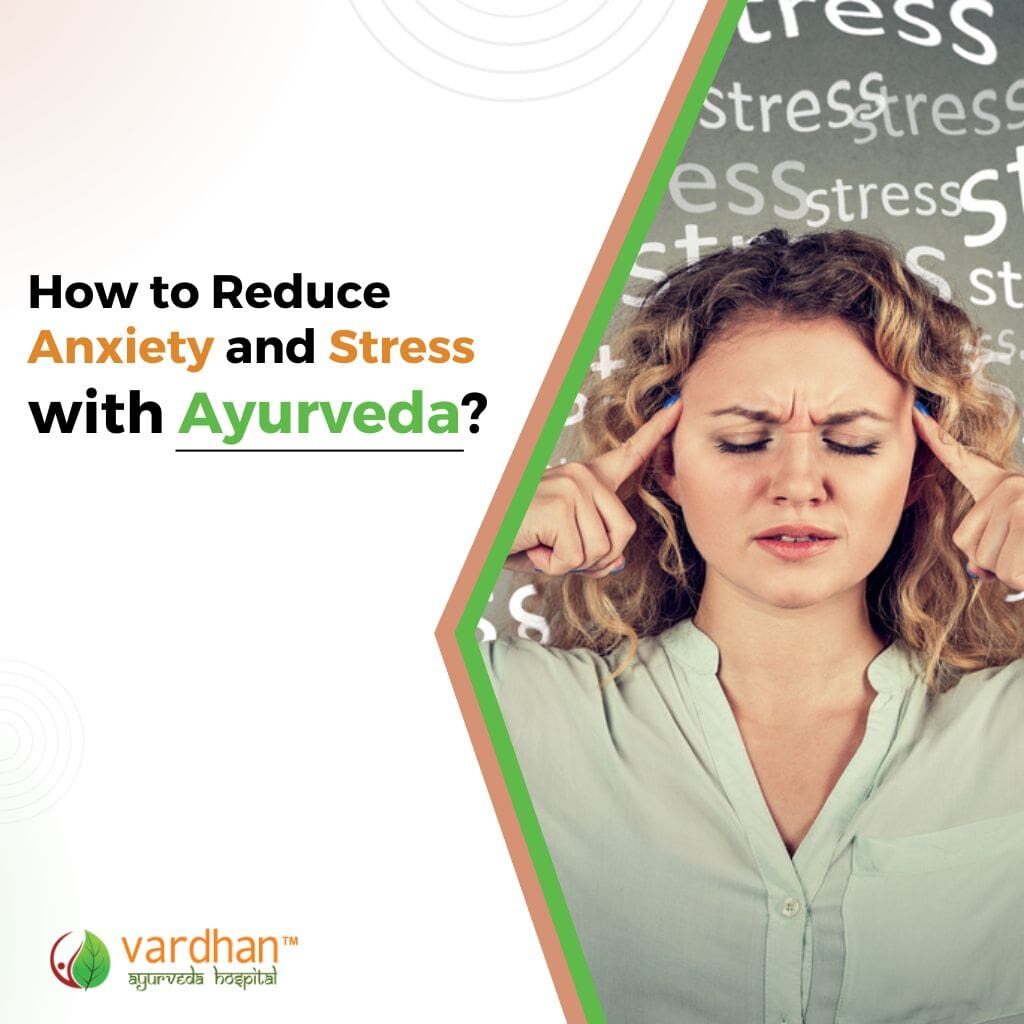Remember those times when you had a big deadline at work while also dealing with a sick family member? Or what about planning a surprise party for a loved one but suddenly facing unexpected weather conditions threatening to ruin the event? Or had to take a last-minute flight for an emergency, but the airport is packed with long lines and delayed flights? Or Losing your phone or wallet just before a big presentation.
These situations can cause stress and frustration, but they can be managed.
But when minor stressors keep piling up, it can lead to long-term stress. That’s where Ayurveda comes in, taking a whole-body approach to addressing mental stress and other mental health concerns.
Stress can lead to the release of stress hormones which can cause imbalances in the body leading to several health problems such as anxiety, depression, cardiovascular disease, and digestive issues.
So, let’s take a look at how you can use Ayurveda to manage your stress effectively.
How Ayurveda Can Benefit with Your Stress Management
Ayurveda emphasizes the importance of a balanced diet, regular exercise, and good sleep habits to promote physical and mental health. In Ayurveda, each individual is seen as unique, combining three doshas (energies) – vata, pitta, and kapha.
- Vata: Vata Dosha governs movement and air in the body. Imbalance can lead to physical symptoms and is balanced through lifestyle, diet, and self-care.
- Pitta: Pitta Dosha controls digestion and metabolism associated with fire. Imbalance can result in digestive issues, inflammation, and anger.
- Kapha: Kapha Dosha controls growth and stability associated with earth and water. Imbalance can lead to weight gain, congestion, and sluggishness.
There are several benefits of Ayurveda, some of them are as follows:
- Promotes relaxation and balance in the body and mind
- Offers a holistic approach to stress management, addressing physical, emotional, and mental factors
- Incorporates natural remedies, such as herbal medicines and aromatherapy, to reduce stress
- Focuses on maintaining a healthy diet and lifestyle to prevent stress build-up
- Uses techniques like yoga and meditation to calm the mind and reduce stress levels
- Supports the body’s natural healing processes to improve overall health and well-being.
Ayurvedic Techniques for Reducing Anxiety
Some of the techniques that are common and advised by Ayurvedic experts that can help relieve your anxiety and stress are:
Meditation and Yoga: Meditation & Yoga have drastic effects on your mental health. Practicing deep breathing and visualization techniques can be especially effective in reducing stress and anxiety.
Abhyanga: Abhyanga is an ayurvedic technique for applying warm herbal oil to the entire body. It helps to balance the doshas and promotes relaxation and calmness.
Aromatherapy: Aromatherapy involves using essential oils to promote relaxation and stress relief. Some commonly used essential oils in ayurveda include lavender, chamomile, and bergamot.
Herbal Remedies: Certain herbs like Ashwagandha, Brahmi, and Shankhapushpi have been traditionally used in ayurveda to reduce anxiety and improve mental health. They can be consumed in the form of teas, powders, or capsules.
Panchakarma: Panchakarma is a cleansing and rejuvenation therapy that involves detoxifying the body through various methods like enemas, oil massage, and herbal remedies. It helps to balance the doshas and reduce stress and anxiety.
Diet and Lifestyle Changes: Following an ayurvedic diet tailored to one’s needs can help balance the doshas and reduce anxiety. Engaging in physical activity, getting enough sleep, and reducing caffeine and alcohol consumption can also help to reduce stress.
Personalized Stress Management Routine with Ayurveda
Here are some tips that you can use to create a personalized stress management routine based on Ayurvedic principles: (Recommended by Dr. Vardhan)
- Determine your dosha (body type) by taking a self-assessment quiz or consulting an Ayurvedic practitioner.
- Incorporate activities that balance your doshas, such as yoga poses, meditation, and aromatherapy.
- Incorporate self-care practices such as massage, warm baths, and mindfulness into your routine.
- Consider incorporating adaptogenic herbs that help the body handle stress and support the balancing of your dosha.
- Prioritize healthy eating and drinking habits that support your dosha and reduce stress.
- Practice deep breathing and relaxation techniques whenever you feel stressed.
- Incorporate physical activities, such as hiking, cycling, or swimming.
- Get enough sleep and rest, which is essential for reducing stress and promoting relaxation.
- Consider seeking support from a counselor or therapist to work through any underlying emotional or psychological stress.
- Review and adjust your routine regularly to ensure it remains effective in managing your stress.
Final Thoughts!
Ayurveda is a holistic approach to wellness that can be easily incorporated into your daily routine. Start small by setting aside dedicated time each day for self-care, such as meditation, yoga, or hot glass water. By making these practices a part of your daily routine, you can experience the healing and rejuvenating effects of Ayurveda in a holistic manner.
Want to Reduce Stress from Life? Contact Vardhan Ayurveda Hospital!
If you are going through any stress and looking forward to managing your anxiety, contact us at Vardhan Ayurveda Hospital. We have a team to alleviate your stress symptoms by following several methods and help you get back to a normal, stress-free life. Book your slot today!


